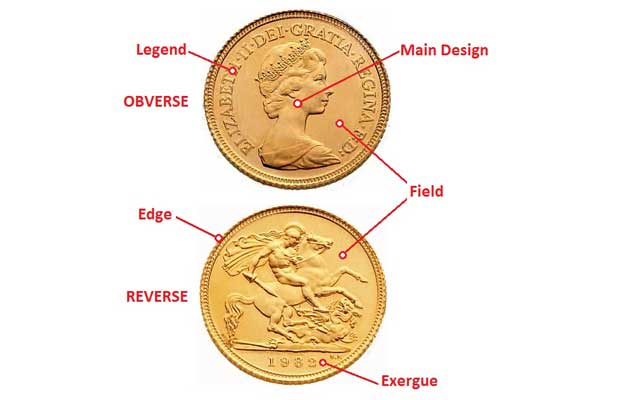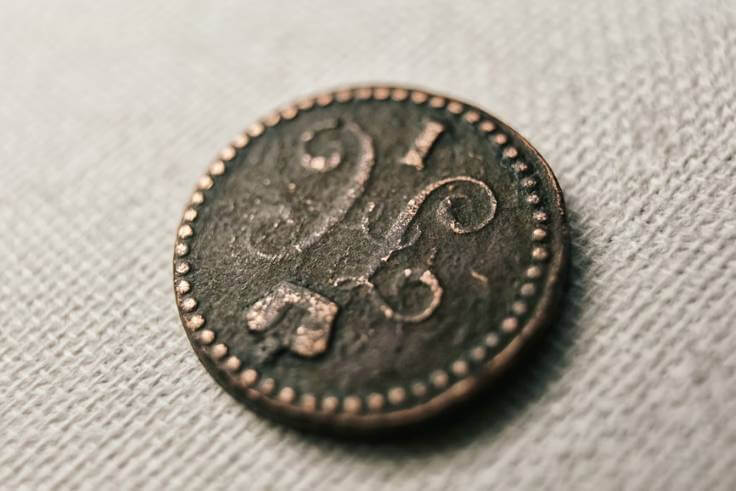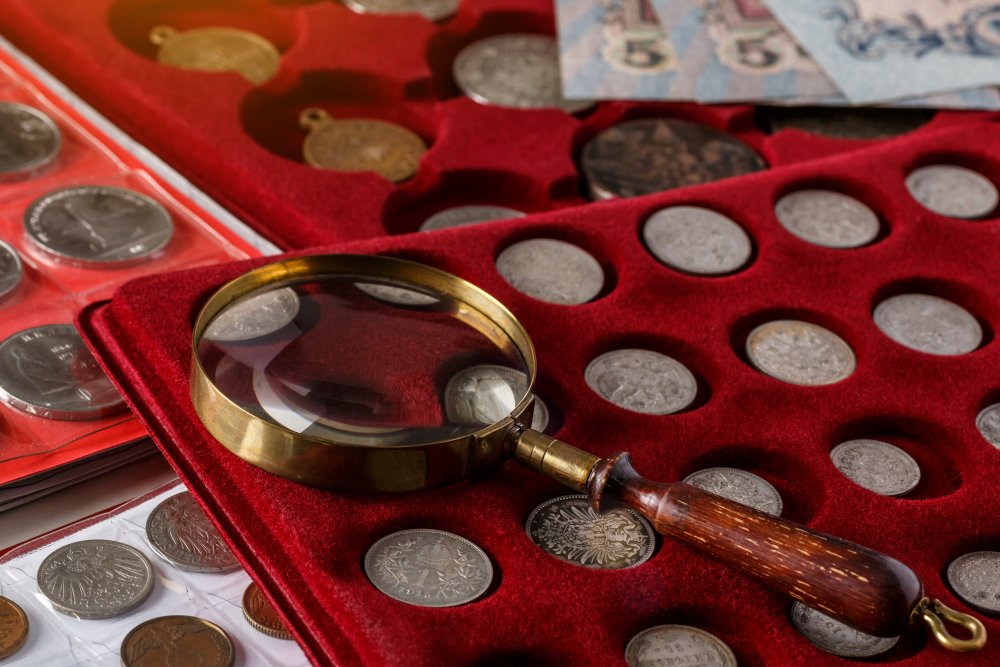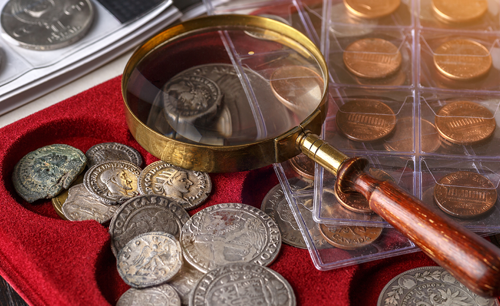Handy Reasons To Picking Lira And Coin Club
Wiki Article
How Can I Utilize The Numismatics Database To Find Out More About Security Printing Facilities In Numismatics?
This research entails using databases that are specialized in the production of currency and security printing. This is a systematic method for conducting such studies. Database Selection: Choose databases that are specialized in security printing and printing for currency. These databases are provided by national mints (such the United States Mint Royal Mint) or banks (such as Federal Reserve or European Central Bank) or industry specific databases and publications.
Define Research Focus: Specify your research objectives. Are you interested in learning more about the background of a specific security printing service, the technological innovations employed in the production of currency, the security features on banknotes and coins or the effects of preventing counterfeiters? Make clear the goal of your search.
Search Strategy: Include keywords such as "security printing facilities", "currency production", "coin minting technologies" and specific facility names If applicable. Use advanced options to sort search results according to date, document types (such a production or technical report) and security features.
Data collection: Information regarding security printing facilities, including the date of their establishment, as well as technological advancements in printing and minting, as well as types and features in coins and banknotes and historical changes or advancements.
Analyze your data to gain a better understanding of the evolution and impact of security print technologies on the numismatics. Examine how security features such as microprinting, special inks, and holograms have changed over the years to stop counterfeiting. Compare the practices and technologies that are employed by different printing facilities or mints.
Cross-Referencing - Verify your findings using data from different sources and databases. This will ensure accuracy and completeness of your investigation. It also gives the complete picture of the practices for printing security.
Documentation - Record your findings in a systematic way, citing the sources used and noting the method used. Detail the databases that you use as well as the search term(s) and relevance of every source to your questions.
Continue to stay updated: Security features and printing technology continue to advance. Stay up to date by keeping track of developments from industry publications such as mint reports, security news, and central bank publications for the latest developments in security features and printing technologies.
These steps can help you look up databases related to security printers. This approach allows for an in-depth study of the technological advancements as well as security features and other developments that have shaped the distribution and production of banknotes as well as coins around the world. See the top her explanation for website advice including slovak coins, banknote, banknote appraisal, lira, platinum, coin die, coin collecting, banknote appraisal, banknote, dime and more.

How Can I Make Use Of Numismatics To Do Research On Mines?
The study of numismatics in relation to mining requires databases that focus on mining operations, historic mine sites, as well as the sources of metals used in coinage. This is a systematic approach for conducting this research:Database selection: Choose databases that specialize in the field of mining history, mineral resources, as well as metals that are used in coin production. Some examples include mining companies, geological survey databases, historical mining records and Numismatic platforms.
Define Research Focus: Specify your research objectives. Are you looking to learn more about historical mining sites and their minerals and the origins in the geology of the metals that were used in coins? Or the different mining techniques employed in different periods of history? Be clear on your goals to help guide your investigation.
Search Strategy: Utilize specific keywords such as "mining", "coinage," and "historical mines," as well as metal names like (gold or silver) and geographical regions and more. Filter results using advanced search options. This includes filtering by date, document types (such geological maps or mining reports, etc.)) and mining methods.
Data Collection: Access historic mining sites that produced the precious metals used for coinage. Data collection: Gather information including mining location dates of operation, the types of metals used as well as production volumes, and the historical mining documents that relate to mining activities.
Analyze your data to determine the relationship between mining & numismatics. Learn how the production of coins was influenced by the purity and availability of metals, coinage standards, and the economic significance of mining regions.
Cross-References: Check the information you've gathered by cross-referencing data from various databases and sources. This will give an accurate and complete image of the mining activity that affected numismatics.
Documentation. Record your research findings, including the sources you used, and noting any methodologies that were employed. Keep track of the specifics of the databases you used as well as the search terms that you used, and how each resource is related to your research.
Stay updated as research advances and discoveries are made mining records and other historical data may change. Updates from geological survey reports, mining companies' reports, and research platforms on numismatics and mining will keep you up-to-date.
Databases can be used to study numismatics in relation to mining operations using these steps. This method allows for an in-depth study of historic mining operations that produced the necessary metals for coin production. It also provides insights into technological, economic, and geographic factors that have influenced the development of numismatics. Have a look at the most popular published here for treasury for site recommendations including legal tender, silver coins, shekel, banknote errors, currency dealer, coin engraving, dinar, mint condition, dirham, banknote appraisal and more.

What Can I Do With The Database To Look Up Numismatics With Regards To Legal Experts?
The study of numismatics and legal experts requires databases that concentrate on numismatic laws, regulations regarding currency and coinage, legal precedents related to numismatic disputes, as well as academic articles that discuss the legal aspects of the numismatics. Here's a systematic way to conduct such a research: Choose databases that are specialized in research on legal issues. These include databases that focus on the law governing numismatics, court rulings that deal with numismatics, as well as academic papers on the legal aspects numismatics. Some examples include legal research platforms like Westlaw or LexisNexis, numismatic law journals as well as publications from numismatic societies.
Define Research Focus: Specify your research objectives. Are you interested in the legal frameworks that govern coins and currencies, numismatic conflict or regulations governing coin production and circulation, or legal interpretations relating to the authenticity of numismatics and ownership? Find out the key areas of your interest to direct your search.
Search Strategy: Use keywords like "numismatic laws,"" "legal aspects" of coinage, "numismatic disputes," along with legal concepts or historical cases (such the authenticity, ownership and counterfeiting). You can use advanced search options to filter results by date, legal subject (numismatics) as well as by jurisdiction (national or foreign), and other factors.
Data Collection: Access to legal precedents like court decisions, legislative texts and scholarly articles regarding numismatic law. Data collection: Collect data like legal analyses as well as case summaries and the interpretations of laws relevant to the issue, along with historical perspectives on legal issues relating to numismatics.
Analyze: Understand the legal implications of numismatics by studying the data. Learn about the legal frameworks that affect the numismatic market, collection management as well as authentication procedures and international trade in numismatic objects. Compare and contrast the legal interpretations in different jurisdictions and the past.
Cross-Referencing: Confirm your findings by cross-referencing data across multiple databases such as courts, legal journals and academic publications. This ensures that your research is reliable and complete, giving you complete information about the legal environment in numismatics.
Documentation: Documentation is essential. Use sources to cite and record the methods you used. Keep track of details on the databases you have accessed, the search terms used, as well as the importance of every source you use to answer your research needs.
Stay Up-to-date: Numismatic law and legal interpretations change in response to legislative changes and court rulings. Keep up to date by ensuring you are updated in legal databases, numismatic publications, and numismatic society news regarding legal developments.
If you follow these steps, you will be able to effectively utilize databases to study the field of numismatics with respect to legal experts. This approach allows for an in-depth analysis of legal structures, challenges and scholarly interpretations that intersect with the field of the study of numismatics. View the top rated money url for more examples including banknote magazine, banknote society, coin appraisal, banknote grading, platinum, historical currency, banknote expo, coin edge, banknote display, rupee and more.

What Can I Do With A Database To Research Numismatics Regarding Online Forums And Communities?
The study of numismatics in relation to forums online and communities entails making use of platforms that let collectors as well as enthusiasts and experts share knowledge, discuss trends, and display collections. Here's a structured approach to conduct such research:Database Choice: Select online communities and forums that are specialized in the field of numismatics. For instance, forums like CoinTalk or Reddit’s r/Coins and specific communities devoted to numismatics that are on social media platforms, like Facebook groups, LinkedIn, or Facebook groups are a few examples.
Define Research Focus: Specify your research objectives. You might be interested in knowing more about the latest trends in collecting, or discussing specific coin types or historical periods. You may also require advice regarding authenticity or grading. Clarify your focus to direct your search.
Search Strategy: Choose terms that relate to your interest, such as "numismatic forums," "coin collecting communities," "online numismatic discussions," and include specific topics (ancient coins contemporary coins and paper money) or keywords related to your topic of research. Utilize the search feature within each platform.
Data Collection: Read discussions, threads, and posts within online communities. Find out about coin identification techniques as well as current market trends, personal experiences and discussions related to numismatics.
Analysis: Examine your data to gain a better understanding of the opinions and experiences of the members of the online numismatic community. Evaluation: Evaluate the reliability of the information, based on the knowledge of the authors, the agreement between members regarding specific topics and the depth of the discussions.
Cross-Referencing: Verify your conclusions by comparing information across different forums and communities. Review the information from various platforms to gain a broader view of trends, market sentiments and expert guidance in the numismatics community.
Documentation: Record all of your observations, including particular threads and discussions. If necessary you wish to include citations of contributors. Note the most important insights, opinions and trends that you have seen in online forums and community.
Stay engaged: Participate actively in discussions, ask questions, and contribute to discussions to gain insights and establish connections with the community of numismatics. Stay up-to-date with new threads. Responses, and announcements to stay informed of current developments and discussions.
Follow these steps to successfully make use of forums and online communities for researching numismatics. This technique lets you benefit from the collective wisdom and experiences of a variety of specialists and collectors providing valuable insight and perspectives about different aspects of collecting coins, identifying them and appreciating the value of them. Follow the most popular zlatemince.cz czech precious metals for site info including coin pressing, currency catalog, banknote grading, banknote marketplace, coin pressing, legal tender, banknote identification, banknote certification, penny, coin holder and more.

What Can I Do With A Database To Research Numismatics With Regards To Industry Consultants?
Researching numismatics with regards to industry consultants requires using databases that focus on consulting companies, individual consultants, industry reports, and publications of organizations like numismatic society. Here's a method to conduct such research:Database Selection: Select databases that are specialized in consulting firms, industry reports and publications relevant to the field of numismatics. Examples include the business directory, consulting firm websites, and publications from numismatic associations.
Define Research Focus: Specify your research objectives. Are you looking for consulting services for numismatic enterprises market research reports on the numismatics (or the expertise of individual consultants on specific numismatic sectors), or trends identified by consultants within the field? Let us assist you.
Search Strategy: Add keywords like "numismatic consultants", "numismatic consulting firms", "market analysis reports for coins" and, if pertinent, include geographic areas or specific areas of specialization. Use advanced search options by selecting results according to the specialties of consultants and consulting services.
Data Collection: Access data on consulting firms specialising in numismatics and industry experts who provide services to businesses dealing with numismatics. Find out more about profiles of consultants as well as specializations (market analyses collecting management, and authentication) as well as testimonials from customers and reports authored.
Analysis: Analyze the data to understand the roles and contributions of industry consultants in the field of numismatics. Evaluation: Examine the methods and the expertise of consultants when advising clients on the numismatic investment, market trends, collection strategies, and regulatory issues.
Cross-References: Make sure that your information is accurate by comparing it to different databases, the publications from organizations for numismatics and reports from the industry. This lets you do a thorough and precise investigation. Also, you'll get a full overview of the consulting industry in the field of numismatics.
Documentation - Document your research findings in a systematic manner by noting the sources and methods. Keep track of details like databases you have accessed as well as your search terms and their relevance to the research questions.
Stay up-to-date: Consultancy and other services and market trends in Numismatics are constantly changing as economic and regulatory changes take place. Keep up to date by keeping an eye on updates to the websites of consulting firms as well as industry publications and the numismatic societies' publications. They'll provide latest perspectives and insights from industry consultants.
Use these guidelines to utilize databases to effectively research the numismatics industry in relation to consultants. This approach allows a comprehensive review of the advice services provided, the market analysis conducted, as well as the strategic insights that consultants provide within the numismatics industry. It also offers useful insights into the business's operations and investment strategies and market dynamics. Take a look at the top dime tips for website examples including antique coins, dime, coin book, currency history, commemorative coins, rupee, banknote grading, commemorative coins, obsolete currency, coin forum and more.
